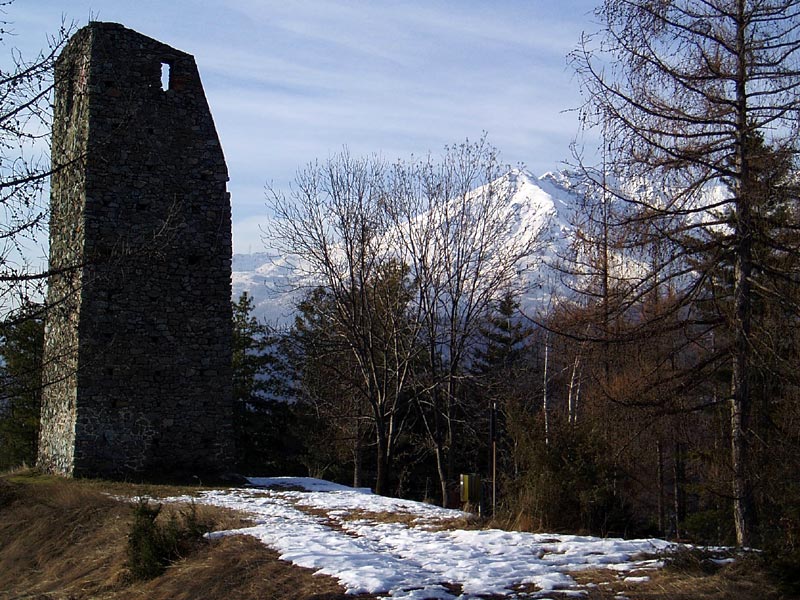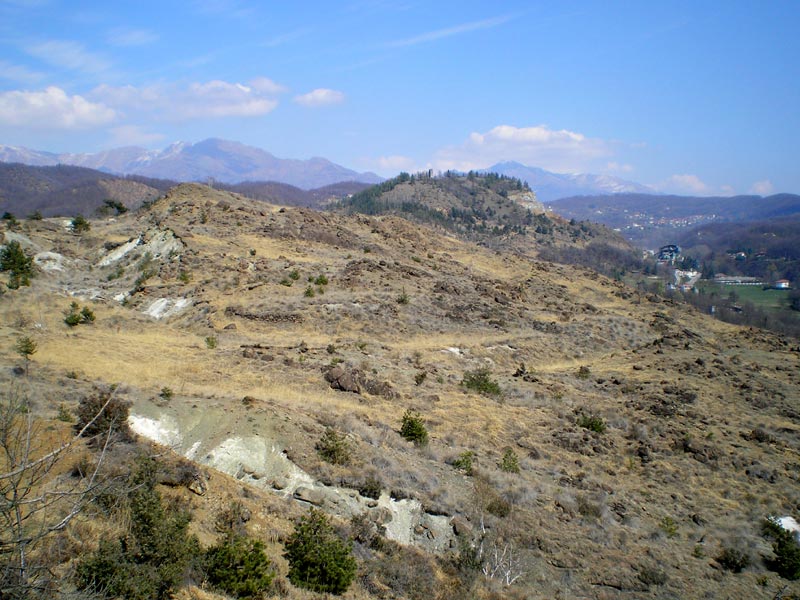Torre Cives
"The place is situated at the top of a highly washed away relief with
calcareous schists, with limestone and magnesite breccia, and
considerable opal outcrops... A territorial survey carried out in 1984
along the excavation fronts of the access road at the top and in the
square has led to the recovery of some fragments of terracotta
associated to iron scoriae. They consist in a few fragments of brown
and not turned ceramics, except for a fragment. Among the shapes it is
possible to recognize only an hemisferical bowl and the foot of a vase
with an open truncated-conic plant. These finds could be dated back to
a period going from the late Prehistory to the High Middle Age. The two
scoriae fragments are laminated, compact, a little oxidized, smooth,
almost without vacuoles".
From "Rivista di Archeologia" - Anno XI - 1987 - director: Gustavo Traversari - Università degli Studi Venezia.
The "tesoretto"
"The 'tesoretto' of Torre Cives consists of five golden coins
dating back to the Byzantine period: one of Leone I and the others of
Basilisco. They have been found in 1956 by some workmen during the
restoration of a non-asphalt road leading to the Torre".
From "Contributi sulla romanità nel territorio di Eporedia", Giorgio Cavaglià - 1998
The solids of the two Emperors
The five golden medals are described in a 1956 document of the Monuments and Fine Arts Service of Piemonte.
- No. 4 solids of th Emperor Basilisco (476-477), made in Italy:
Front/ Bust with helmet and armour of the Emperor with the lance on his shoulder.
"D.N. BASILIS-CVS PRET AVG".
Rear/ Victory on the left, with a long cross. In the field on the right, a star. "VICTORI-A AVGG".
Exergue: "COMOB".
Total value: about 37 Euros - No. 1 solid of the Emperor Leone (457-473), made in Constantinopole:
Front/ Bust with helmet and armour in front of the Emperor with the lance on his shoulder.
"D.N. LEO PE-RPET AVG".
Rear/ Victory on the left, with a long cross. In the field on the right, a star.
"VICTORI-A AVGGGA".
Exergue: "CONOB"
Total value: about 6 Euros
From "Atto di stima delle monete", 18th May 1956 from the Monuments and Fine Arts Service of Piemonte.
"The 'solids' of Vidracco are coins coming from a dark historical
period, and they were let out in Constantinopole: the coin of Leone I
has been preserved in a wonderful way, and it belonged maybe to the
emissions of the end of his kingdom (474). The four coins of Basilisco
have also been perfectly preserved. They arrived in Vidracco between
476 and the first half of 477. According to the experts, the coins
could be used for commercial exchanges between this area of Piemonte
and the port of Genova".
From "AD QUINTUM", Bollettino del Gruppo Archeologico di Collegno - 1972








